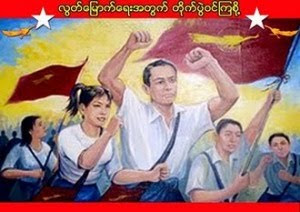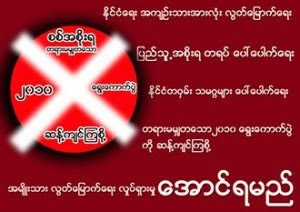Recently, the Burmese military regime increased the prices of petrol, compressed natural gas and diesel by between two and five times. As a result, there is a major panic in the transport sector, increases in commodity prices and possible political and social unrest. Our World has encountered major energy crises in 1973, 1979 and 1990 and today we face a fourth energy crisis so that enjoying energy peace-of-mind has become an unrealistic goal without cooperation and engagement. To tackle this major crisis, all industrial countries, oil-importing HIPC and CIS countries, OPEC countries and developing countries are now adjusting their macroeconomic policies and appropriate policy responses are implemented. However, the Burmese generals have not considered the policy implications to cope with the situation. They think increasing prices is just enough. According to their lack of knowledge and expertise, the people of
Economists examined the likely size and nature of the macroeconomic shocks delivered to the economy and policy implications to cope with oil price hikes are recommended. Generally, there are two main groups of potential policies that can be used to mitigate the effects of high oil prices on consumers, government budget, total demand of the industry i.e., price-related options and quantity-based options. In short, price-related options focus on bearing of the costs by various groups such as consumers, suppliers and governments, whereas, quantity-based options focus on placing restrictions on the consumption activities of oil products.
Under the price-related options, three main strategies are available such as
Passing the full price increase on a given product onto final users.
Passing only a part (or none) of the price increase and either finance the subsidy or tax reduction involved through the budget or through a cross subsidy from other products, or reduce the profits of oil companies.
Adjusting prices in such a way that companies supplying the petroleum products receive a lower margin for each unit sold, or negative margins cross-subsidized by other business units, thus absorbing some of the price increase.
Apparently, under the quantity-based options, mandatory and exhortatory restrictions on the use of activities such as vehicle travel and use of the electricity when the power system uses heavy fuel oil or diesel are available.
In several developing countries, the price-related policy option of subsidies is widely used by implementing a number of different mechanisms such as direct subsidies to users, indirect subsidies through the reduction of taxes on petroleum products, and targeted income subsidies. Even in advanced countries like
Before increasing the oil prices, the military regime used some forms of direct and indirect subsidies mechanisms. However, only a small amount of government budget allocation was used in this sector so that the regime seems to have a serious financial burden to switch to the full price increase passing policy-option. This style of switching policy without having the perceived legitimacy, general popularity and credibility of the government can have a serious consequence of political and social unrest. Eliminating subsidies on petroleum products because of the financial burden is a very difficult and unpopular policy choice, especially for the Military Dictatorship government like SPDC.
If SPDC generals think they are the only savior and working for the interests of people, they should transfer the government budget allocation of acquiring the high-tech modern army with nuclear power to bear the cost of the subsidies to high oil prices for the interests of the people. Otherwise, opposition to these policies and total demand of changing the government from the Civil Society will come soon.
Khin Ma Ma Myo (18/8/2007)


































